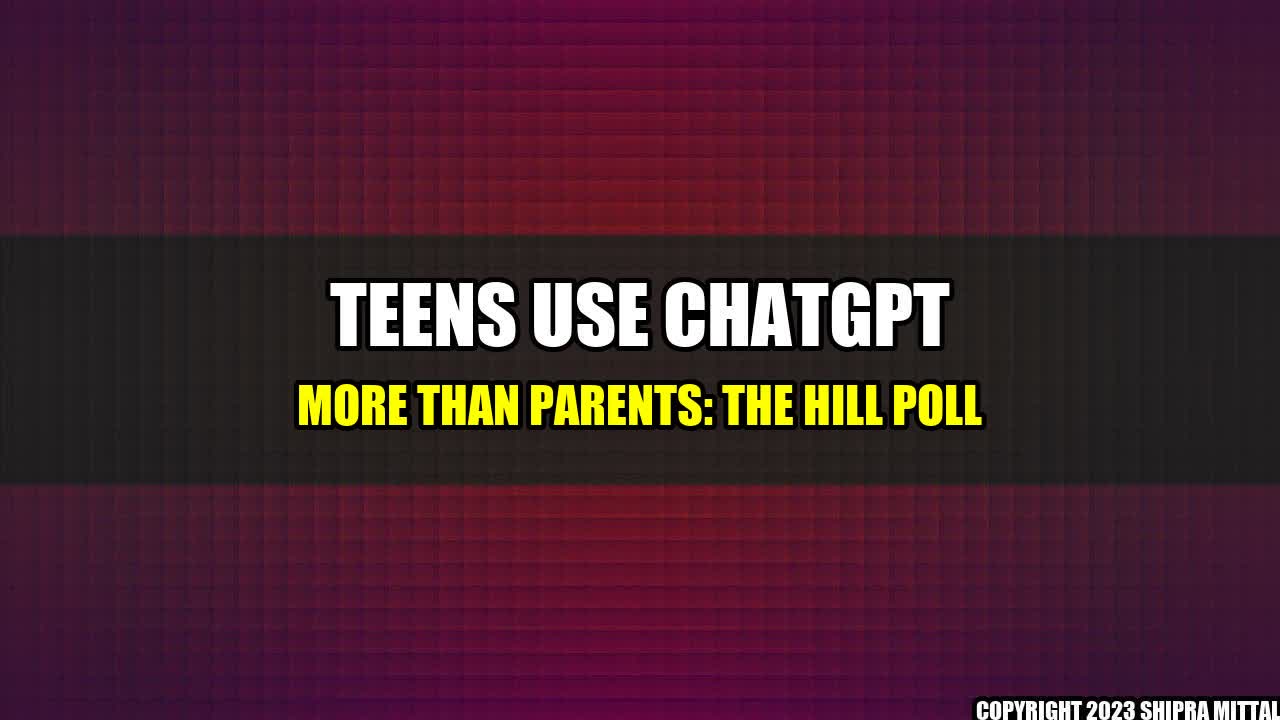
It was a typical Wednesday afternoon when 15-year-old Lily came home from school to find her mom on the phone, chatting with one of her friends. "Who are you talking to, mom?" asked Lily curiously. "Oh, just an old friend from college," her mom replied while texting away on her phone. Lily shrugged and went to her room to do her homework, but before she could start, she got a notification on her phone.
It was a message from ChatGPT, a popular AI-powered chatbot that helps teenagers with their homework, exams, and life problems. Lily had been using ChatGPT for a few months now and found it extremely helpful, especially during the pandemic when she was stuck at home and couldn't see her friends or teachers in person. She quickly replied to the message, asking for advice on how to write a persuasive essay for her English class. Within seconds, she got a detailed response from ChatGPT, with examples, tips, and even a template to follow. Lily was impressed, and she realized that ChatGPT was her go-to resource for academic and emotional support.
Little did Lily know that she was part of a growing trend among teenagers who rely on ChatGPT for guidance and companionship. According to a recent poll conducted by The Hill, teens are more aware of ChatGPT than parents, and they use it more frequently and enthusiastically.
These numbers are not surprising, considering that today's teenagers are digital natives who grew up with smartphones, social media, and instant messaging. They are used to multitasking and getting instant gratification, and they value efficiency and convenience above all. ChatGPT offers them all of that and more. It's available 24/7, it's free, it's user-friendly, and it's personalized. ChatGPT learns from its interactions with each user and adapts its responses accordingly. It's like having a private tutor, a coach, and a therapist all in one. No wonder teens love it.
But what about parents? Why are they not as enthusiastic about ChatGPT as their children? The Hill poll shows that some parents are skeptical about AI and its role in education and mental health. They worry that ChatGPT might replace human teachers and counselors, or that it might not be able to understand the nuances of human emotions and struggles. They also worry about privacy and security issues, and they prefer to monitor their children's online activities rather than entrusting them to a chatbot.
However, these concerns can be addressed and overcome. ChatGPT is not meant to replace human interaction and guidance, but to complement it. It can help relieve the pressure and stress that teenagers experience daily and empower them to take ownership of their learning and well-being. ChatGPT is also safe and secure, and it respects the privacy and confidentiality of its users. Parents can be reassured that their children are in good hands and that they have a reliable resource to turn to when they need help.
In conclusion, ChatGPT is more than just a chatbot. It's a lifeline for many teenagers who struggle with the challenges of adolescence and the disruptions of the pandemic. It's an innovative tool that harnesses the power of AI to enhance learning, creativity, and resilience. And it's a new frontier in education and mental health that has the potential to transform the way we teach and learn. To make the most of ChatGPT, parents and teachers need to embrace it as a valuable resource and engage with it themselves. They need to learn from their children and use ChatGPT as a bridge between generations and a catalyst for intergenerational dialogue and collaboration. The future belongs to ChatGPT and the teenagers who use it. Are you ready to join them?
Akash Mittal Tech Article
Share on Twitter Share on LinkedIn